Hotel Basics – Departments In A Hotel
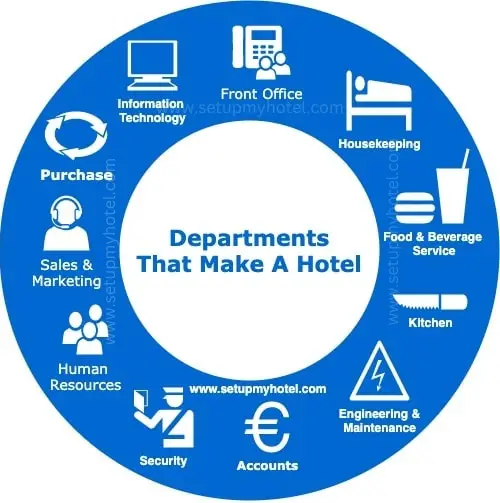
The Main Departments In a Hotel Or Resort As an outsider when you look at a hotel, the operation appears ...
Read more
Management – Achieving Energy Savings With Lighting Control

How To Save Electricity With Smart Systems And Procedures? Saving Electricity in the Guest Room For new hotel construction, choose ...
Read more
Security – Establishing An Effective Guestroom Lock Policy
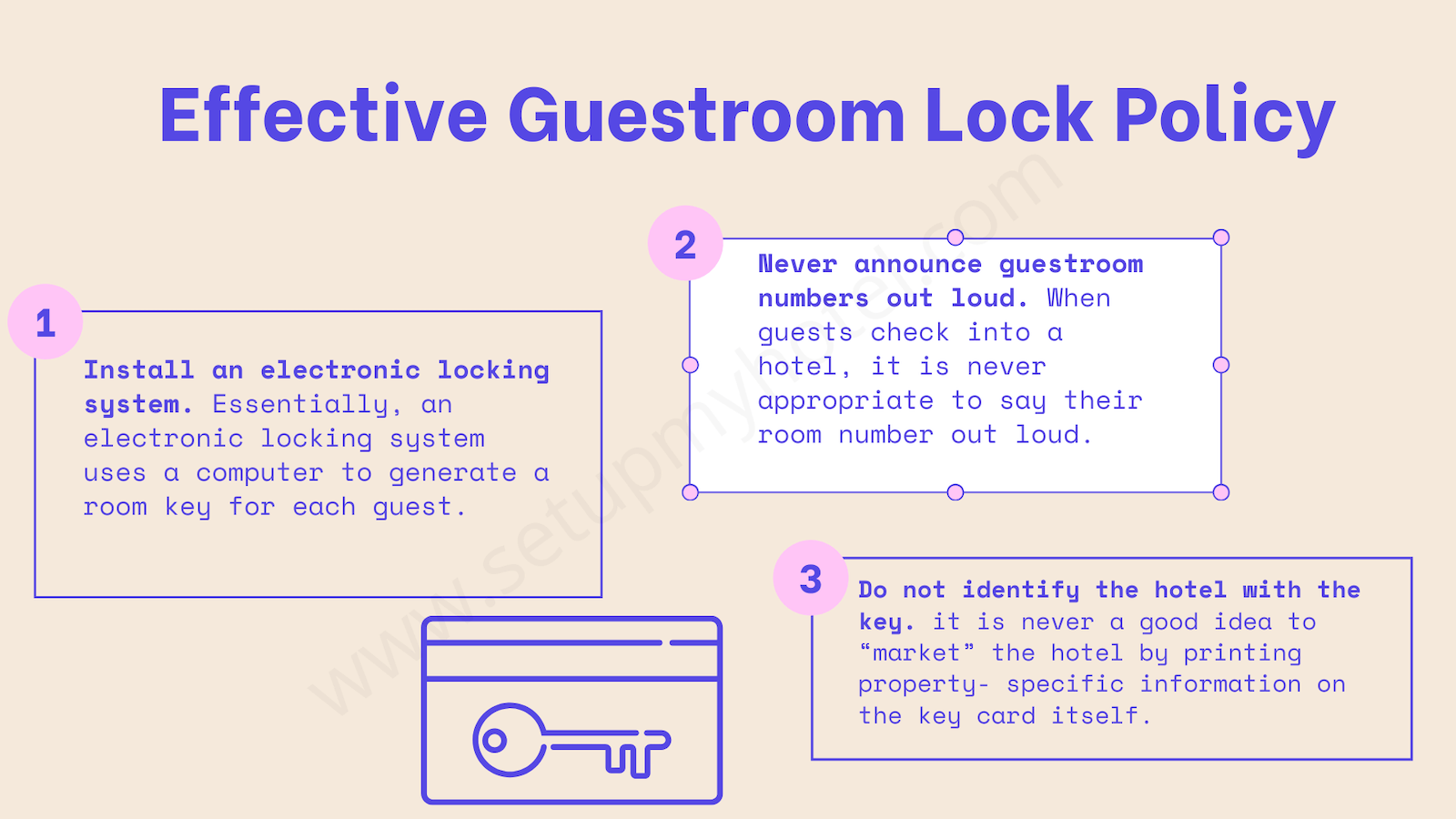
Establishing an Effective Guestroom Lock Policy The following steps outline an effective policy to protect the security of hotel guests ...
Read more
Hotel Basic – Rules While Handling Guest Complaints
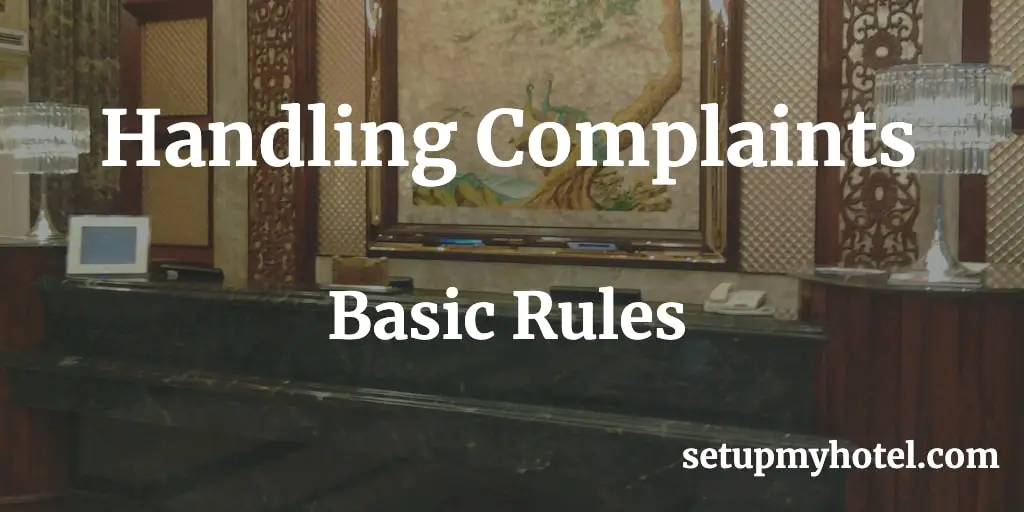
Hotel Basic Rules While Handling Guest Complaints There are reasons behind a guest complaint that we will never know. Things ...
Read more
Management – Hotel Guidelines For Dealing With The Media During A Crisis
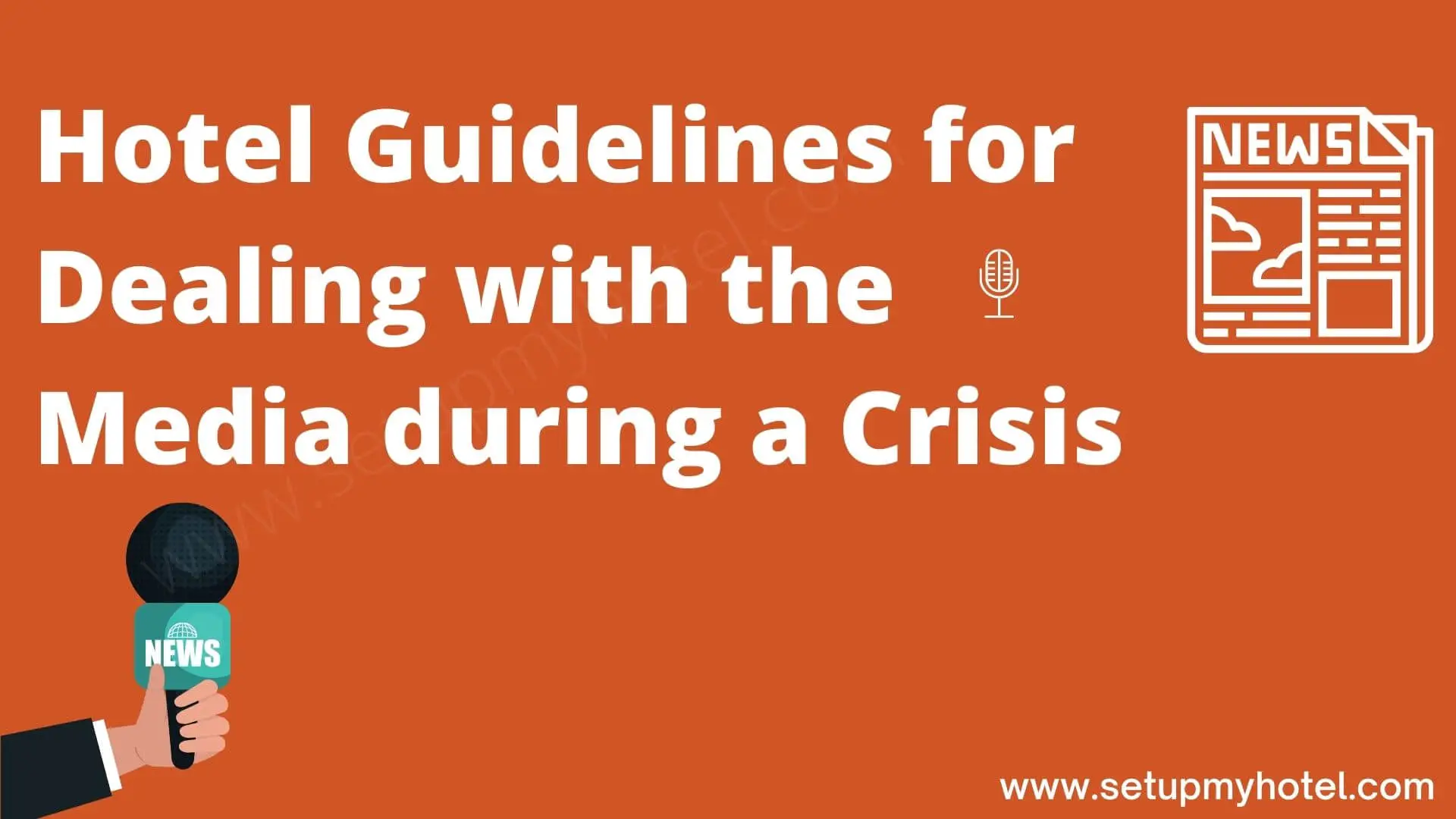
Hotel Guidelines For Dealing With The Media During A Crisis When a crisis occurs in a hotel, it’s important to ...
Read more
Management – General Manager’s Responsibilities In A Crisis
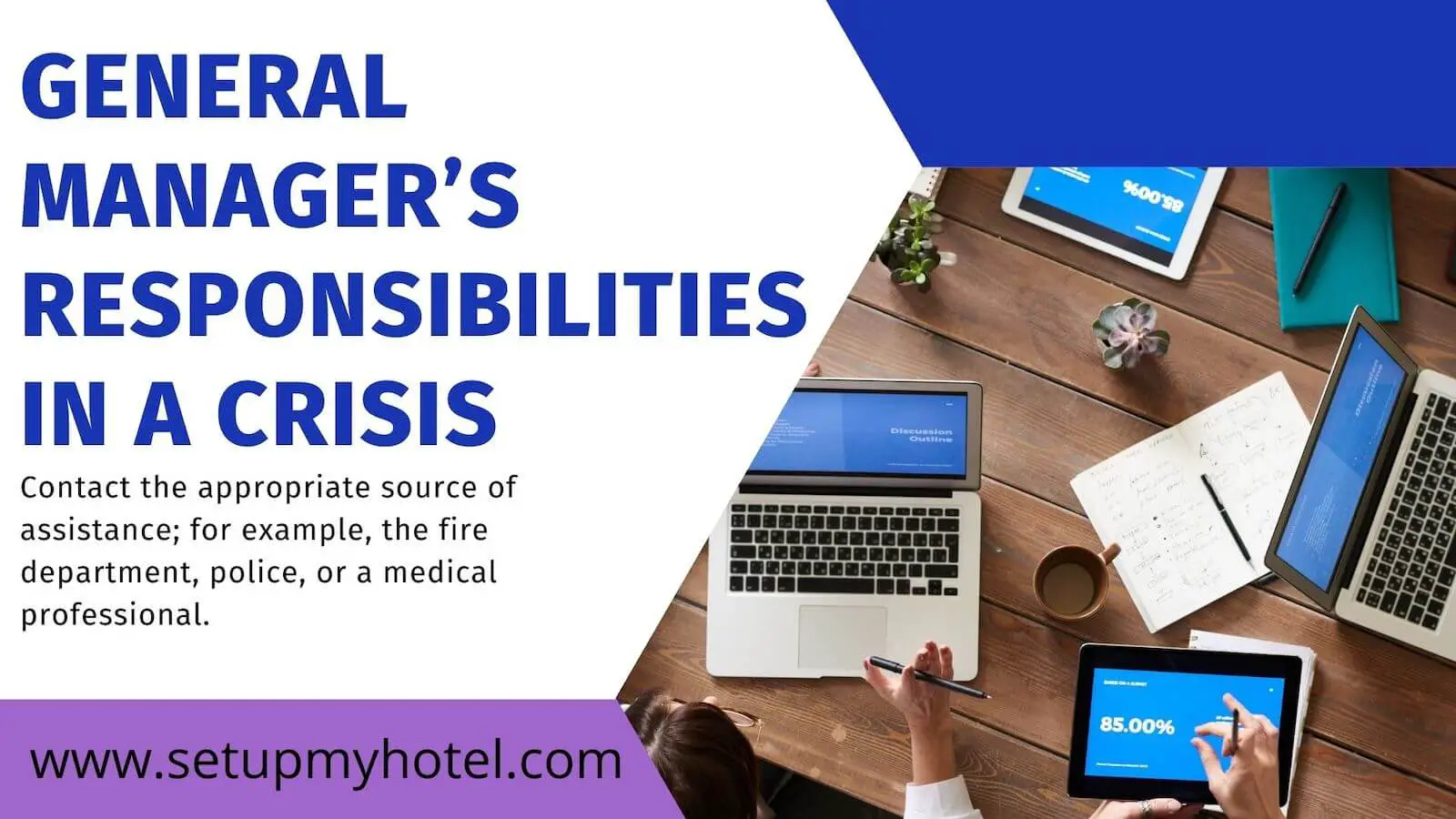
General Manager’s Responsibilities in a Crisis 1. Take the immediate action required to ensure the safety of guests and employees. ...
Read more
Finance – Types Of Profit And Loss Statements In Hotels
Types of Profit and Loss Statements Used in Hotels
Read more
IT – Manager Daily Checklist For The Hotel IT Equipment
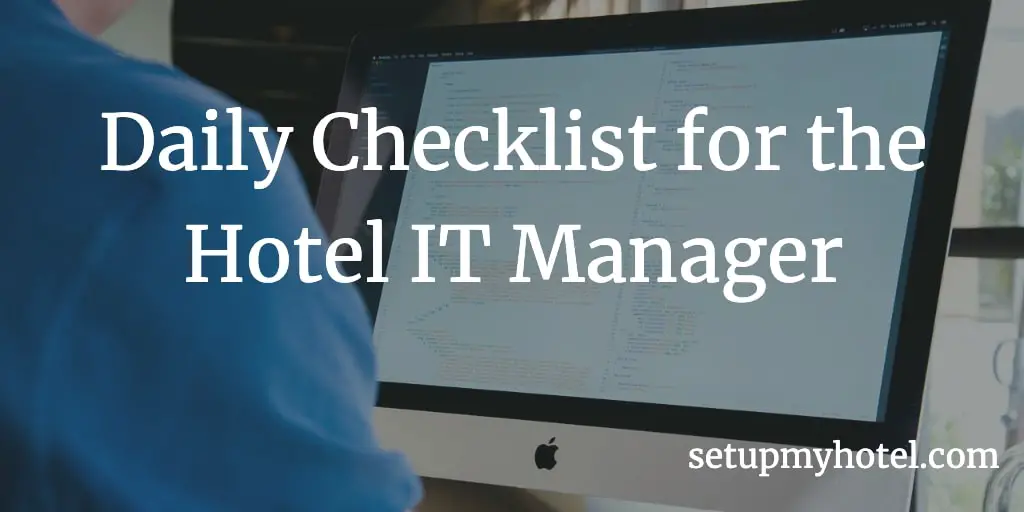
Checklist for the Hotel Information Technology (IT) Equipment 1. Telephone Exchange or EPBAX: 2. Days Teleconference Conference Details: 3. Fax ...
Read more
Management – Hotel Checklist For The Preparation Against Storms/Cyclone/Flood
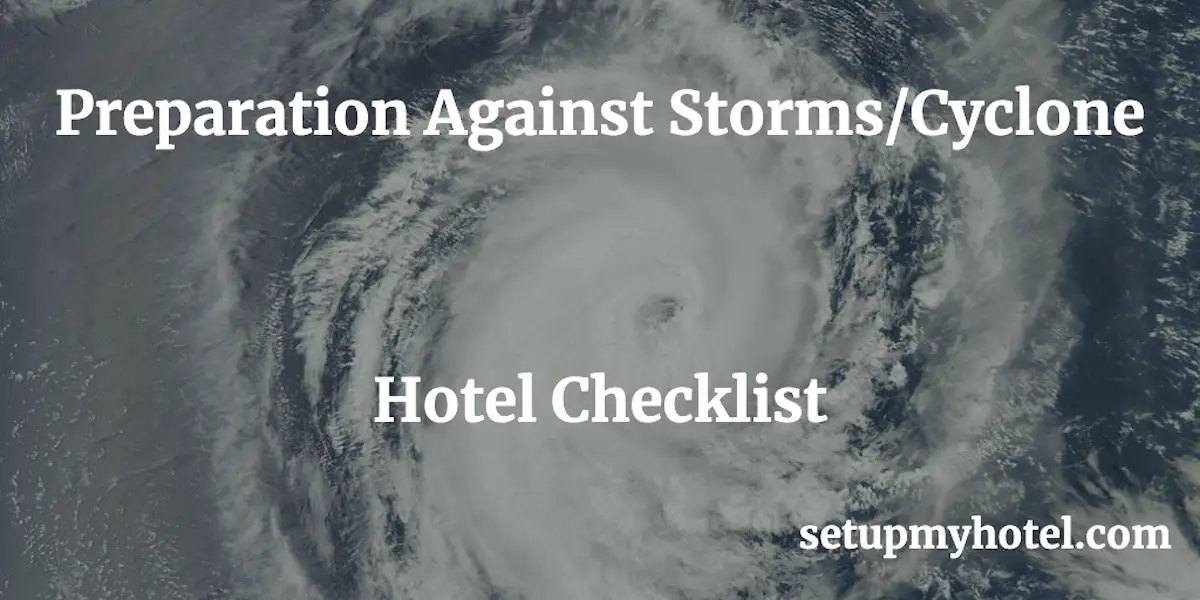
Checklist For The Preparation Against Storms/Cyclone/Flood Hotels located in areas prone to storms, cyclones, and floods need to be well-prepared ...
Read more
Management – Ways For Improving Hotel Green Policy

Ways for Improving Hotel Green Policy One of the ways that hotels can improve their environmental impact is through the ...
Read more









